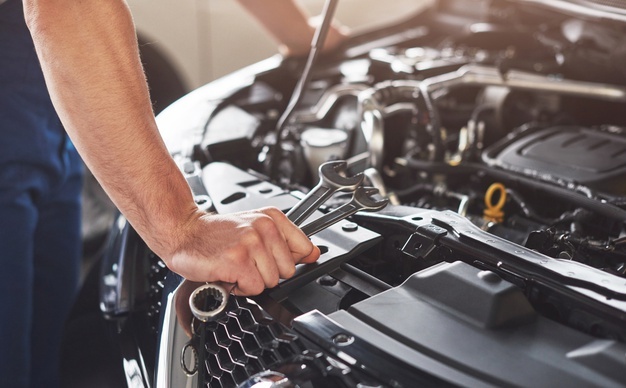The Importance of Regular Engine Services for Optimal Vehicle Performance

Car engines can last a long time when cared for properly. But, if left ignored or neglected, they’ll show wear and tear quickly and require expensive repairs.
Prioritizing regular engine service is a smart move that provides numerous benefits, including improved fuel efficiency, reduced emissions, and cost savings. For individuals seeking to enhance their vehicle’s longevity, incorporating some simple engine maintenance tips into their routine can make a significant difference. Whether it’s scheduling regular oil changes, replacing air filters, or addressing minor issues promptly, these proactive measures contribute to a smoother-running engine. Read on to learn more about the importance of regular engine services and discover valuable engine maintenance tips for optimal performance.
Reduced Emissions
Among the most prominent industries producing carbon emissions is the transportation sector. Reducing vehicle emissions is crucial to combat climate change and reaching a net-zero carbon footprint. It can be accomplished through several strategies, including using cleaner fuels, reducing idling, and regular engine maintenance services. Emission standards are based on the amount of gaseous pollutants, particulate matter, and short-lived climate pollutants released during in-use driving. Passenger cars typically emit these pollutants from three significant sources: exhaust, the fuel system (evaporative), and crankcase ventilation gases.
Regular engine services can help to reduce emissions by removing harmful deposits and sludge from the engine, which causes inefficient operation and increased emissions. Also, fresh oil has a lower viscosity than old oil, which allows the engine to run more efficiently and produce fewer emissions. Getting your oil changed regularly will also help you to pass any emissions tests you may face. It will help you save money and contribute to a greener planet.
Increased Resale Value
As with any machine, proper maintenance is crucial to its longevity. When ignored, engine components are subjected to premature wear and tear that can significantly shorten their lifespans. Skipping regular engine service is a surefire way to accelerate this process, potentially resulting in expensive repairs and engine failure. A properly maintained vehicle will operate smoothly and efficiently, minimizing unnecessary energy, resources, and fuel waste. It translates into lower operating costs, reduced emissions of harmful pollutants, and contributes to a sustainable environment.
Additionally, routine engine services like oil changes and air filter replacements ensure proper lubrication of moving parts to reduce friction and wear and maximize power output. Gear functionality will be significantly enhanced by routine transmission servicing for your vehicle. Like an oil change, transmission services are part of standard auto maintenance. These simple tasks also help to protect the engine from excessive heat and corrosion. When it comes time to sell, a car with a documented history of engine care and proper maintenance will fetch a higher price, making it an attractive investment for prospective buyers. It is essential in today’s highly competitive car market.
Improved Fuel Efficiency
Engine maintenance improves thermal efficiency, reduces emissions, extends lifespan, and prevents significant breakdowns. It also optimizes fuel combustion and energy consumption, cutting overall fleet operating costs by minimizing waste. Engine performance optimization, such as cleaning or replacing dirty air filters, optimizing engine timing and fuel injection systems, and ensuring proper lubrication, also improves fuel economy by reducing frictional losses. In addition, utilizing vehicles with advanced engine management systems and avoiding under-inflated tires (which increase rolling resistance) helps maximize fleet fuel efficiency.
Several other factors can enhance vehicle fuel efficiency, including planning efficient routes to avoid stops at traffic signals and roadblocks and minimizing engine idling time. Additionally, accelerating and braking gradually, driving at a moderate speed (higher speeds decrease fuel efficiency), and removing excess weight and aerodynamic drag from the vehicle will help to improve fuel performance. Fleet telematics systems can provide a wealth of data to drivers, allowing them to identify and implement additional fuel-saving practices in their daily drives.
Preventative Maintenance
A vehicle with a documented maintenance history increases its resale value. Moreover, preventative maintenance costs are lower than those associated with unplanned repairs and breakdowns. For example, a long-haul truck that breaks down due to faulty equipment costs companies $100,000 in lost production daily. The key to engine efficiency is proper lubrication and ignition systems. Ineffective ignition causes misfires and inefficient combustion, which decrease fuel efficiency. Performing regular inspections and servicing helps to eliminate these issues, which improves energy efficiency.
Additionally, a poorly maintained engine can lead to overheating and damage to the components. Often, the damage isn’t immediately apparent but can affect future performance. An expert mechanic will be able to spot these problems early on and stop them from developing into more expensive engine repairs. It translates to higher resale values, improved fuel efficiency, and reduced emissions. It also leads to significant cost savings for businesses and individuals.
